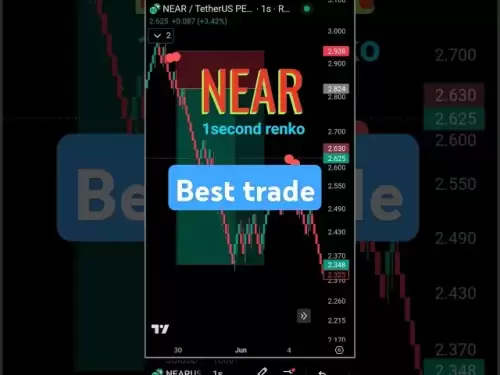-
 Bitcoin
Bitcoin $105,958.7463
-1.46% -
 Ethereum
Ethereum $2,573.9608
-5.95% -
 Tether USDt
Tether USDt $1.0005
0.05% -
 XRP
XRP $2.1553
-3.88% -
 BNB
BNB $654.7084
-1.22% -
 Solana
Solana $147.8876
-6.45% -
 USDC
USDC $0.9998
-0.01% -
 Dogecoin
Dogecoin $0.1792
-4.47% -
 TRON
TRON $0.2693
-1.95% -
 Cardano
Cardano $0.6427
-5.75% -
 Hyperliquid
Hyperliquid $41.8216
-2.22% -
 Sui
Sui $3.0698
-7.70% -
 Chainlink
Chainlink $13.5208
-6.00% -
 Bitcoin Cash
Bitcoin Cash $425.5404
-2.40% -
 UNUS SED LEO
UNUS SED LEO $9.0529
2.14% -
 Avalanche
Avalanche $19.5263
-7.32% -
 Stellar
Stellar $0.2612
-4.76% -
 Toncoin
Toncoin $3.0128
-5.29% -
 Shiba Inu
Shiba Inu $0.0...01204
-4.49% -
 Hedera
Hedera $0.1570
-6.93% -
 Litecoin
Litecoin $84.8024
-4.37% -
 Polkadot
Polkadot $3.8487
-5.06% -
 Ethena USDe
Ethena USDe $1.0004
0.00% -
 Monero
Monero $310.7189
-4.21% -
 Dai
Dai $0.9999
0.00% -
 Bitget Token
Bitget Token $4.5194
-4.07% -
 Uniswap
Uniswap $7.5602
-3.52% -
 Pepe
Pepe $0.0...01107
-8.20% -
 Aave
Aave $285.5551
-5.09% -
 Pi
Pi $0.5752
-7.61%
Is it important for a cryptocurrency wallet to support multiple currencies? How to determine compatibility?
A multi-currency crypto wallet simplifies portfolio management by allowing users to store, send, and receive various digital assets like Bitcoin, Ethereum, and altcoins all in one secure interface.
Jun 11, 2025 at 02:28 am
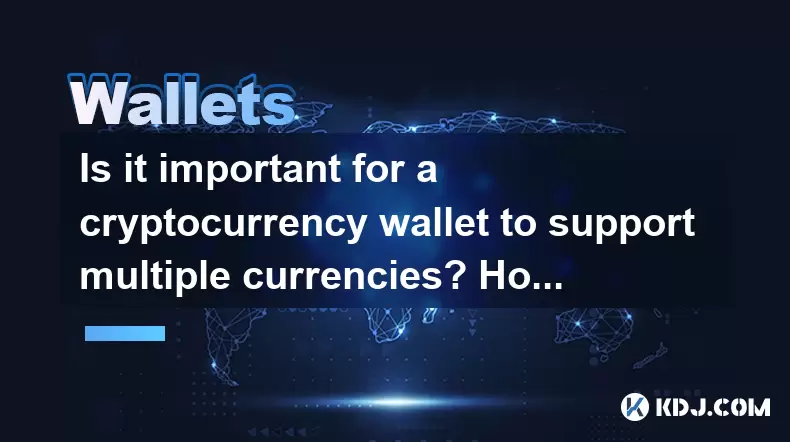
Understanding the Role of Multi-Currency Support in Cryptocurrency Wallets
In the rapidly evolving world of digital assets, cryptocurrency wallets serve as essential tools for storing, sending, and receiving various types of crypto. One critical feature that significantly affects usability is whether a wallet supports multiple currencies. This functionality allows users to manage diverse portfolios without juggling several separate wallets. For investors holding Bitcoin (BTC), Ethereum (ETH), Litecoin (LTC), or newer altcoins, having a single interface can simplify asset management.
However, not all wallets are created equal when it comes to currency compatibility. Some wallets specialize in specific blockchains, while others offer broad support across major and niche cryptocurrencies. The importance of multi-currency support largely depends on how many different tokens an individual owns or plans to own.
Why Supporting Multiple Currencies Matters
A wallet that supports multiple currencies provides convenience, efficiency, and security benefits. Users can monitor their entire portfolio from one application instead of switching between platforms. Additionally, managing private keys becomes more streamlined—reducing the risk of losing access to funds due to poor key management.
From a security perspective, using a single trusted wallet reduces exposure to potential vulnerabilities associated with downloading and using multiple wallet services. Each additional wallet increases the attack surface, especially if some are developed by less reputable teams. Therefore, selecting a well-reviewed multi-currency wallet helps mitigate these risks.
How to Check If a Wallet Supports Your Cryptocurrencies
Before choosing a wallet, it's crucial to verify which currencies it supports. Here’s how you can determine compatibility:
- Visit the official website of the wallet provider and look for a supported coins list
- Review the wallet’s whitepaper or technical documentation for blockchain compatibility
- Check third-party review sites or forums like Reddit and Trustpilot for user experiences
- Look into the wallet’s integration with popular exchanges or DeFi platforms
Some wallets clearly state which blockchains they interact with, such as ERC-20 tokens for Ethereum-based assets or BEP-20 for Binance Smart Chain. Always cross-reference this information before transferring funds.
Technical Considerations Behind Compatibility
Cryptocurrency wallets interact with different blockchain protocols, each with its own structure and standards. A wallet must be programmed to understand and sign transactions according to the rules of each network. For example, Bitcoin uses UTXO (Unspent Transaction Output) model, whereas Ethereum employs an account-based model.
Supporting multiple currencies means the wallet must handle:
- Different transaction signing algorithms
- Unique address formats
- Network-specific APIs and RPC calls
This level of technical complexity often separates well-developed wallets from less sophisticated ones. Open-source wallets like Electrum or Electron Cash may support fewer coins compared to Trust Wallet or Atomic Wallet, which are built with broader integration in mind.
Choosing the Right Wallet Based on Currency Needs
If your portfolio consists solely of Bitcoin, a dedicated wallet like Blockstream Green or BlueWallet might suffice. However, for those dealing with Ethereum, stablecoins, NFTs, and other ERC-20 tokens, a wallet like MetaMask or Trust Wallet would be more appropriate.
For advanced users who hold a wide range of assets across multiple chains, hardware wallets like Ledger or Trezor offer extensive support through integrated apps. These devices allow users to install applications for specific blockchains, ensuring secure and compatible storage for numerous currencies.
When evaluating options, always check for:
- Regular software updates
- Community trust and reputation
- Backup and recovery features
- Customer support availability
Common FAQs About Multi-Currency Wallets
Q: Can I add new currencies to a wallet after setup?
Yes, most modern wallets allow users to add new currencies post-setup. In apps like Trust Wallet or MetaMask, you can manually add tokens via contract addresses or enable pre-integrated currencies directly from settings.
Q: What happens if I send unsupported coins to my wallet?
Sending unsupported coins to a wallet can result in permanent loss of funds. Always confirm that the wallet supports the exact token and blockchain before initiating any transfer.
Q: Do multi-currency wallets charge higher fees?
No, transaction fees depend on the network being used, not the number of currencies in a wallet. Gas fees on Ethereum, for instance, are determined by network congestion, not wallet type.
Q: Are hardware wallets better for multi-chain support?
Hardware wallets like Ledger offer strong multi-chain support through downloadable apps. They provide enhanced security but may require more technical knowledge compared to mobile wallets.
Disclaimer:info@kdj.com
The information provided is not trading advice. kdj.com does not assume any responsibility for any investments made based on the information provided in this article. Cryptocurrencies are highly volatile and it is highly recommended that you invest with caution after thorough research!
If you believe that the content used on this website infringes your copyright, please contact us immediately (info@kdj.com) and we will delete it promptly.
- Plasma Labs Raises Its XPL Token Sale Deposit Cap to $1 Billion
- 2025-06-14 00:20:12
- A new report by the World Economic Forum (WEF), titled Asset Tokenization in Financial Markets, directly references a major development involving the XRP Ledger (XRPL)
- 2025-06-14 00:20:12
- Algorand (ALGO) Awaits Confirmation Above $0.209 for Upside
- 2025-06-14 00:15:12
- SEC Chair Backs DeFi and Self-Custody – Promises Clearer Rules for Crypto and Bitcoin
- 2025-06-14 00:15:12
- Bitcoin [BTC] adoption in Kenya has surged, even in informal settlements
- 2025-06-14 00:10:12
- Hyperliquid (HYPE) token price prediction: Will it reach $100?
- 2025-06-14 00:10:12
Related knowledge
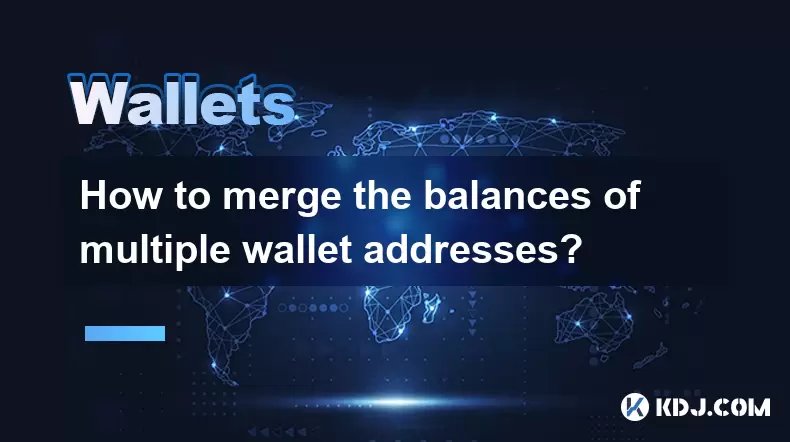
How to merge the balances of multiple wallet addresses?
Jun 13,2025 at 06:21pm
Understanding the Concept of Merging Wallet BalancesMerging the balances of multiple wallet addresses involves consolidating funds from different cryptocurrency wallets into a single address or account. This process is commonly undertaken by users who manage several wallets for security, diversification, or organizational purposes. Merging balances can ...
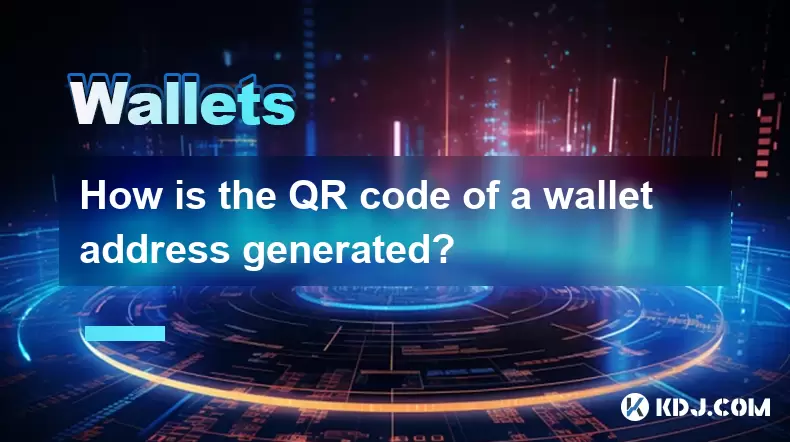
How is the QR code of a wallet address generated?
Jun 13,2025 at 10:49pm
Understanding the Basics of a Wallet AddressA wallet address is a unique identifier used in blockchain networks to send and receive cryptocurrencies. It is derived from a pair of cryptographic keys — a private key and a public key. The private key is kept secret and grants control over the funds, while the public key is used to generate the wallet addre...
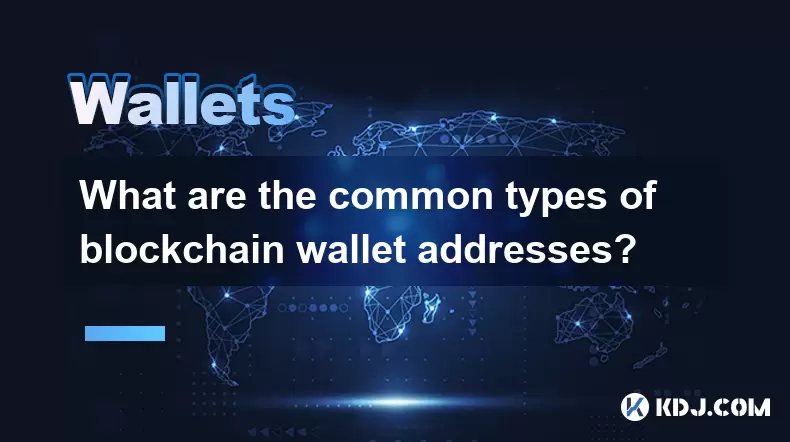
What are the common types of blockchain wallet addresses?
Jun 13,2025 at 10:56pm
What Are the Common Types of Blockchain Wallet Addresses?Blockchain wallet addresses are unique identifiers that enable users to send and receive cryptocurrencies securely. Each blockchain network has its own standards for generating these addresses, which vary in format, structure, and cryptographic algorithms. Bitcoin (BTC) Wallet AddressesBitcoin use...
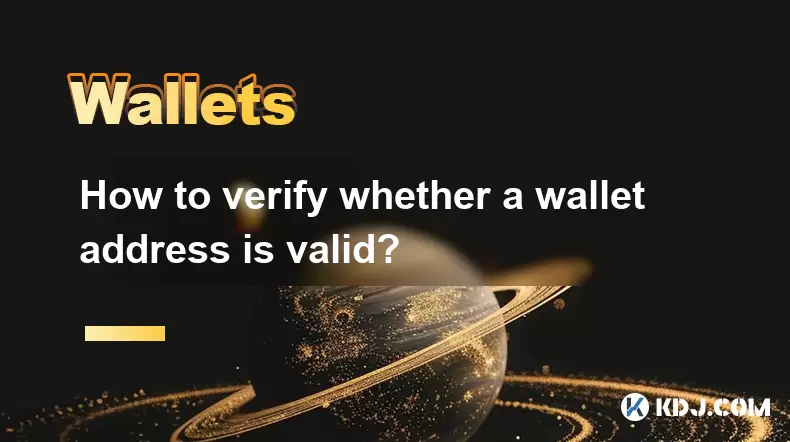
How to verify whether a wallet address is valid?
Jun 13,2025 at 05:08pm
Understanding the Basics of Wallet Address ValidationA wallet address is a unique identifier used in blockchain networks to send and receive cryptocurrency. Verifying whether a wallet address is valid is crucial for ensuring that transactions are executed correctly and securely. The validation process involves checking the structure, format, and checksu...
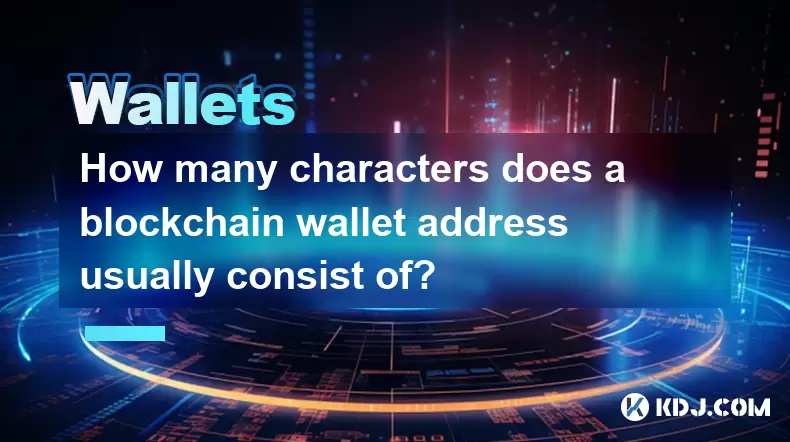
How many characters does a blockchain wallet address usually consist of?
Jun 13,2025 at 06:42pm
Understanding the Structure of a Blockchain Wallet AddressA blockchain wallet address is essentially a unique identifier used to send and receive cryptocurrencies. It functions similarly to a bank account number in traditional finance but with cryptographic underpinnings that ensure security and decentralization. The structure of these addresses varies ...
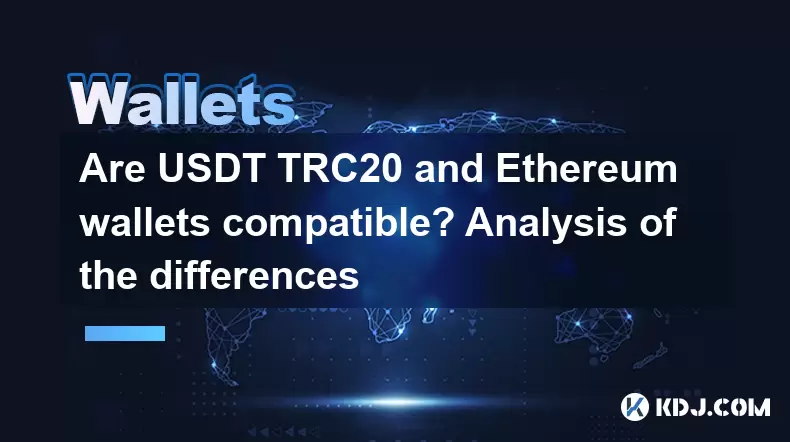
Are USDT TRC20 and Ethereum wallets compatible? Analysis of the differences
Jun 13,2025 at 05:28pm
Understanding the Fundamentals of USDT TRC20 and EthereumUSDT, or Tether, is a stablecoin that maintains a 1:1 peg with the U.S. dollar. It operates on multiple blockchain networks, including Ethereum (ERC-20) and Tron (TRC20). While both versions represent the same asset—Tether USD—their compatibility across wallets depends heavily on the underlying bl...

How to merge the balances of multiple wallet addresses?
Jun 13,2025 at 06:21pm
Understanding the Concept of Merging Wallet BalancesMerging the balances of multiple wallet addresses involves consolidating funds from different cryptocurrency wallets into a single address or account. This process is commonly undertaken by users who manage several wallets for security, diversification, or organizational purposes. Merging balances can ...

How is the QR code of a wallet address generated?
Jun 13,2025 at 10:49pm
Understanding the Basics of a Wallet AddressA wallet address is a unique identifier used in blockchain networks to send and receive cryptocurrencies. It is derived from a pair of cryptographic keys — a private key and a public key. The private key is kept secret and grants control over the funds, while the public key is used to generate the wallet addre...

What are the common types of blockchain wallet addresses?
Jun 13,2025 at 10:56pm
What Are the Common Types of Blockchain Wallet Addresses?Blockchain wallet addresses are unique identifiers that enable users to send and receive cryptocurrencies securely. Each blockchain network has its own standards for generating these addresses, which vary in format, structure, and cryptographic algorithms. Bitcoin (BTC) Wallet AddressesBitcoin use...

How to verify whether a wallet address is valid?
Jun 13,2025 at 05:08pm
Understanding the Basics of Wallet Address ValidationA wallet address is a unique identifier used in blockchain networks to send and receive cryptocurrency. Verifying whether a wallet address is valid is crucial for ensuring that transactions are executed correctly and securely. The validation process involves checking the structure, format, and checksu...

How many characters does a blockchain wallet address usually consist of?
Jun 13,2025 at 06:42pm
Understanding the Structure of a Blockchain Wallet AddressA blockchain wallet address is essentially a unique identifier used to send and receive cryptocurrencies. It functions similarly to a bank account number in traditional finance but with cryptographic underpinnings that ensure security and decentralization. The structure of these addresses varies ...

Are USDT TRC20 and Ethereum wallets compatible? Analysis of the differences
Jun 13,2025 at 05:28pm
Understanding the Fundamentals of USDT TRC20 and EthereumUSDT, or Tether, is a stablecoin that maintains a 1:1 peg with the U.S. dollar. It operates on multiple blockchain networks, including Ethereum (ERC-20) and Tron (TRC20). While both versions represent the same asset—Tether USD—their compatibility across wallets depends heavily on the underlying bl...
See all articles
























